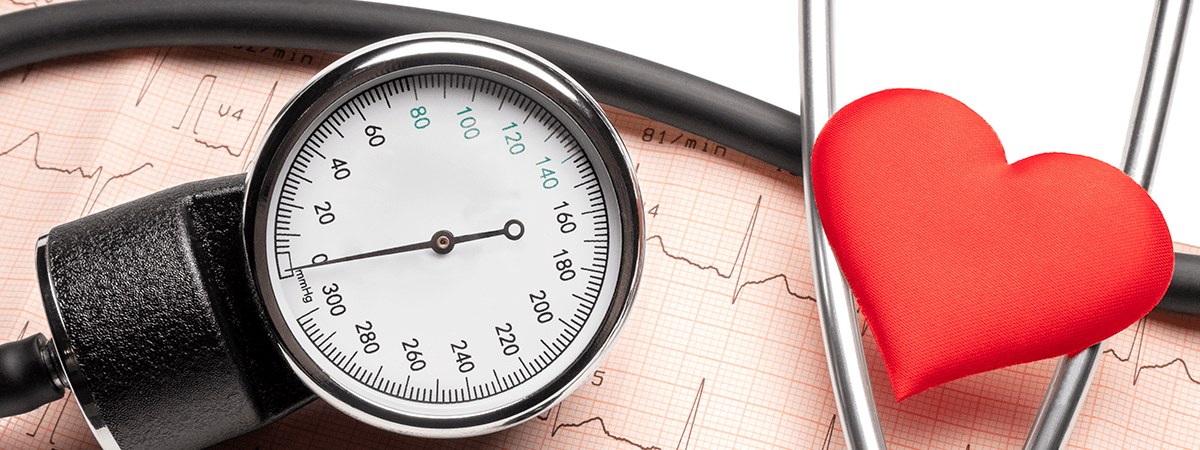Sodium is an essential mineral that plays a vital role in maintaining fluid balance in the body, transmitting nerve impulses, and supporting muscle function. However, consuming too much sodium can have negative effects on cardiovascular health, including increasing the risk of high blood pressure, heart disease, and stroke.
Let’s explore the impact sodium has on cardiovascular health, including the effects of different types of salt, and whether or not there are benefits to eating sodium.

When consumed in excess, sodium can increase blood pressure, which is a major risk factor for heart disease and stroke. High blood pressure can damage the arteries, causing them to become narrow and stiff, which can lead to heart disease and stroke.
The American Heart Association recommends that adults consume no more than 2,300 mg of sodium per day, with an ideal limit of no more than 1,500 mg per day for most adults.1
Research has also shown that reducing sodium intake can help lower blood pressure and reduce the risk of heart disease and stroke. A study published in the New England Journal of Medicine found that reducing sodium intake by 25% could lower the incidence of cardiovascular disease by up to 9.5%.2 Another study published in the American Journal of Hypertension found that reducing sodium intake by 1,000 mg per day could lower systolic blood pressure by 5.5 to 6.6 mmHg.3

Not all salt is created equal. There are several different types of salt, each with their own unique characteristics and nutritional profiles. Some of the most common types of salt include:4
Table Salt: This is the most common type of salt found in most kitchens. It is heavily processed (which is not ideal) and typically contains additives such as iodine and anti-caking agents.
Sea Salt: This type of salt is harvested from evaporated seawater and contains trace minerals such as magnesium, potassium, and calcium.
Himalayan Pink Salt: This type of salt is mined from ancient salt beds in the Himalayan Mountains and is known for its distinctive pink color. It contains trace minerals such as iron, potassium, and calcium.
Kosher Salt: This type of salt is less processed than table salt and is often used in cooking because of its coarse texture.
While some types of salt may contain trace minerals that can be beneficial for health, it's important to keep in mind that all types of salt are high in sodium and should be consumed in moderation.
While excess sodium consumption is associated with negative health outcomes, it's important to note that sodium is still an essential nutrient that the body needs to function properly. Sodium helps maintain fluid balance in the body, transmits nerve impulses, and supports muscle function.
In addition, research has shown that consuming a moderate amount of sodium may actually be beneficial for heart health in some cases. A study published in the Journal of the American Medical Association found that low-sodium diets may be associated with an increased risk of cardiovascular disease and death, particularly in people with normal blood pressure.5 The study suggests that consuming a moderate amount of sodium (around 3,000 to 6,000 mg per day) may be optimal for heart health in these individuals.
To begin really understanding how sodium impacts your heart, begin creating tags anytime you eat foods that are particularly salty. For an even more in-depth breakdown, tag which type of salt was used for your tagged meals. Over time, you’ll notice specific patterns in your heart rate.
You can also share these tags with your doctor or dietician. Together, you can better understand sodium’s effects on your heart and determine the optimal diet for maintaining or establishing optimal cardiovascular health.
- https://www.heart.org/en/healthy-living/healthy-eating/eat-smart/sodium/how-much-sodium-should-i-eat-per-day
- https://www.nejm.org/doi/full/10.1056/nejmoa1304127
- https://pubmed.ncbi.nlm.nih.gov/23558162/
- https://www.heart.org/en/healthy-living/healthy-eating/eat-smart/sodium/sea-salt-vs-table-salt
- https://pubmed.ncbi.nlm.nih.gov/25119607/



